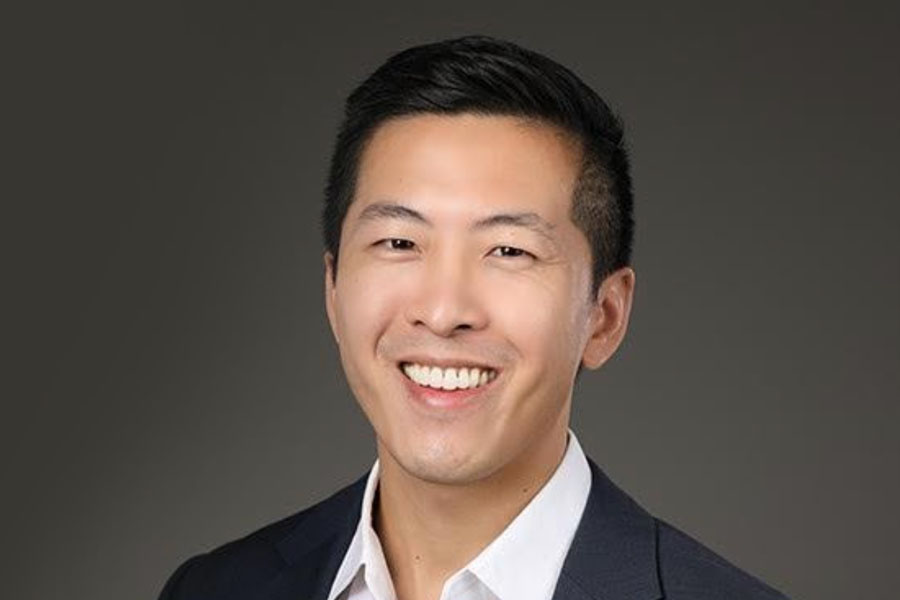What is your current role in health care?
“I’m a healthcare consultant who specializes in growth strategy and patient access – and the intersection of the two. Internally, I lead our Health Systems People & Culture Committee (which includes significant investment in our Inclusion & Diversity Efforts), I am also part of our firm-wide Pride Employee Resource Group.”
What stands out as a favorite memory during your time as an MHA student?
“I was fortunate enough to have the same group in year one and year two for the problem-solving courses. They were a wonderful group of people, we are very close friends today.While we are spread out across the country, we make an effort to visit one another whenever we’re in town. The work that we did was also very meaningful and it never felt fluffy, which a lot of short-term projects can be. In short, my most memorable experiences were those that allowed us to apply our academics into the field, and to do so with amazing classmates.”
How has the MHA Program helped prepare you for your career?
“One of the reasons I chose the program was because of the reputation of the network and the culture of being a “mafia”. I just really can’t emphasize enough how strong the power of the network is, and in particular how it matures over time. We start as classmates, commisterating on how stressful the fellowship process is, we supported each other as early careerists struggling with imposter syndrome and climbing the corporate ladder, and now we call upon each other to discuss challenges and opportunities as healthcare leaders. It’s an amazing thing to be a part of and not something that is easily quantified as a benefit of the MHA program.”
What challenges and opportunities will healthcare leaders encounter in the next 5-15 years? What skills will leaders need to be successful in light of these challenges and opportunities?
“The first one is really about population health. We were talking about the shift away from fee-for-service when I was in the program and we continue to talk about that shift and population health today. But organizations are still struggling to define the scope of population health and operationalize it. Everyone wants to deliver on population health, but it’s been a structural challenge in terms of deciding whether it is something a department owns, something everyone owns or something you can just “hire out.” So while it’s top of mind for everyone, few would say they’ve made a significant dent in achieving its stated goals. Similarly, another large challenge is embracing health equity as a joint responsibility and not as an affinity project. I really would like us as leaders to transition from “Health Equity” being a “do-good” initiative that we support when we can, to something that we are all responsible for. Inequity is ingrained in our processes, our medical education, our clinical trials; there is so much that we need to untangle. Investing in a few initiatives here or there or just having a dialogue about inequity is not going to move the needle, we need top down commitment to understanding and changing the structure of how healthcare is designed and delivered.
Leaders who have the courage (and compassion) to create bandwidth and capacity for their teams. We need to make sure that we’re not constantly just piling on more things for our people to do. I think we should be bold enough to take things off people’s plates, not just add things on.”
If you could give one piece of advice to a current student, what would it be?
“I think that people who have really accelerated their careers are the people who have actually been intentional about maintaining their network. Don’t think about networking like it is a box to check. My biggest advice would be to continue to maintain and build relationships with your classmates, professors, and preceptors because those are the things that you’re going to rely on when times are tough or when you need expertise.”
Why is your class the best class ever?
“I can confidently confirm that my class is the best class ever.”

